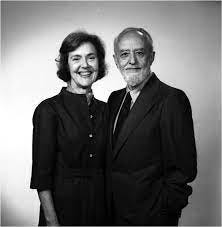When we think of Muzafer Sherif, some images automatically come up in the minds of most psychology students. We think of the Robbers Cave experiment. We think of the studies on autokinetic effect and social norms. We think of the realistic conflict theory.
In short, we mostly think of the work he did to further social psychology as a scientific field.
His work on social norms, group behavior, and social conflict takes a whole new color when you take a closer peek into the events going on in his life at these times.
You know Sherif the psychologist, and this article will help you understand Sherif the political activist.
A World in Chaos
Sherif was born in 1905 to a moderately wealthy family in Turkey. At the time, Turkey was a part of the Ottoman Empire. That would soon change.
The early decades of the 20th century were a time of rising nationalism and global warfare. Sherif had been exposed to international wars in 1911, 1912, and 1913 before the first world war broke out in 1914.
He also lived through the Armenian genocide in 1915. If that wasn’t enough, with the fall of the Ottoman Empire, his town was first occupied by Greek forces before being retaken by Turkish forces in 1924.
It was in this context that he decided to pursue philosophy and later psychology. He moved to the US for his MA and Ph.D. after completing his graduation from Turkey.
Sherif had arrived on the American shores at the peak of the Depression Years. (The late 1920s and early 1930s)
It wouldn’t be a leap to think that he firsthand saw the economic ruin people were in and the conflicts that arose because of it.
In 1932, he visited Berlin to attend a lecture by Wolfgang Kohler and was dismayed by the rampant Nazism and racism prevalent in the country. Before he turned 30, he had seen the world change completely and the bloodshed that this change brought.
Those who are good with remembering years might note that it was in this period that Sherif conducted his studies on social norms and the autokinetic effect.
Sherif the Anti-Fascist
In 1939, he moved to Ankara University as a professor. Little did he know, it was this place which would irreversibly blur the lines between Sherif’s politics and his science.
Sherif believed that more than rewards and punishments, it was the cultural and political norms of a society that shaped a human being. For him, humans were a product of their society but they could also act as agents of change within the society.
A humanist and self-determinist view.
This was in direct conflict with the Nazi ideology that believed racial superiority was immutable and innate.
The Turks were sympathetic to the Nazi cause and instituted policies and rules in accordance with their ideology. Sherif noticed this and was outspokenly against it.
He explicitly sided with the anti-fascist side on the Ankara University campus and protected a Jewish student who was being discriminated against. He also regularly wrote texts ridiculing and dismantling the “Scientific” notions of Nazis.
Criticizing fascists always comes at a cost. Sherif was no different.
In 1944, Sherif was arrested and placed in solitary confinement without any charges being brought against him. Later, he was removed from his position at Ankara University.
He managed to escape Turkey through a scholarship from the US but his friends were not so lucky. By 1951, most of his friends in Turkey had been arrested for their anti-fascist views.
Sherif the Marxist
If you think Sherif’s troubles ended when he returned to the US, you are in for a surprise.
Sherif, along with being an anti-fascist, was also an outspoken Marxist. He was an active member of the Turkish Communist Party in the 1930s as well.
A Marxist did not belong in the US in the early 1950s, yet, here he was. Having escaped retribution for being anti-fascist in Turkey, he was about to face retribution for being a Marxist in the US.
The 1950s were the time of the Cold War and anyone with an inkling of sympathy towards communism or Marxism was treated as a potential suspect. Sherif found himself in trouble once again.
He was interrogated extensively by the FBI for his involvement in Marxist organizations and Commie sympathies. Luckily, the FBI did not find any reason to continue their investigation.
With political strife behind him, Sherif carried out the Robbers Cave Experiment which had a simple message for global politics.
Robbers Cave and Later Life
Sherif, in his work, had shown that conflict is rarely just interpersonal or intergroup. His theory claimed that a real or perceived lack of resources makes groups fight each other with destructive consequences. Also, if there is a bigger goal for both groups to work towards, the differences are forgotten and collaboration is possible.
This wasn’t just an experiment. It was a message of possible peace and optimism for a world in the trenches of the Cold War. And that is what Sherif’s science and his politics were all about — optimism and hope.
He had seen the destruction and pain conflicts bring about firsthand throughout his life. He wanted to offer humanity a way out through his studies.
In the last few years of his life, Sherif felt that he did not get the credit he deserved for his work. He was a man who was in exile from his homeland, in a place that did not recognize his work and its importance.
For most of his life, he struggled with manic depression which became worse when his wife and co-researcher, Carolyn Wood Sherif passed away in 1982.
Sherif lived most of his life in conflict and war and his work reflected that. He died in 1988 due to a heart attack in the US but before he died, he got one last chance to visit the place which brought him so much fame.
In 1985, despite struggling with manic depression and the loss of his wife, Sherif got a chance to visit Robbers Cave — the place which demonstrated that peace was possible.
And that is it for this week! It is honestly mindblowing how much we can understand about a person and their work by learning about their personal life. Sherif is no different.
The lives of psychologists are immaculate peeks into the history of their times. Wonder how little we know about other idols of ours.
Maybe we will figure it out with time.
Until next time,
Arjun








Interesting read, sir! However, I wish you would talk more about the truth behind the robbers cave experiment. The study was highly funded due to the aftermath of the second world war, and there was a race to find out what it was that caused people to turn on each other like in the Holocaust. Sherif’s funds to prove his point were running out and so Sherif and his team purposefully interfered with and manipulated the study to yield the results they desired. The study was straight up dubious.
This was so intresting that I want to read the other researcher's personal background as well. Also, the agenda behind Sherif's conflict resolution tactics on introducing a common goal is very much in line with promoting global citizenship to reduce political differences to fight against a unified goal of the problems faced on global levels like poverty, climate change, etc.